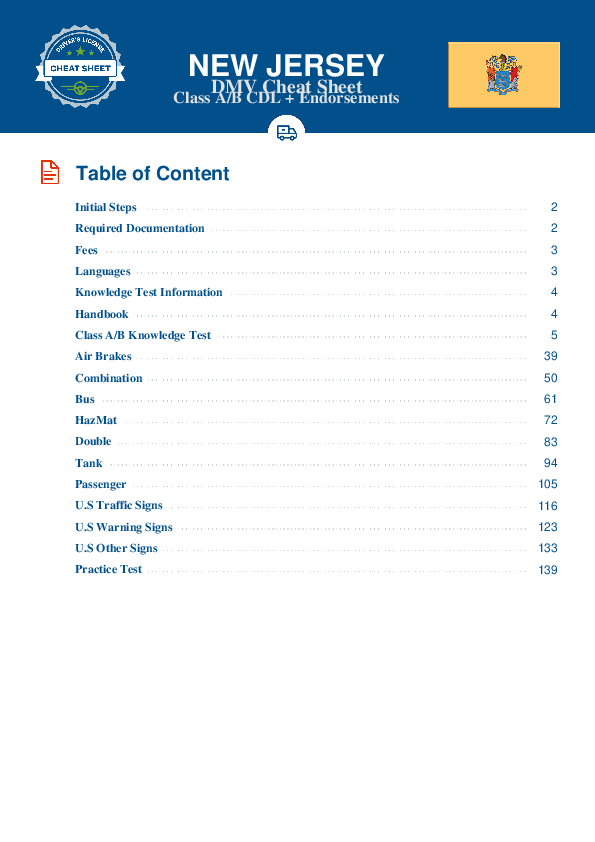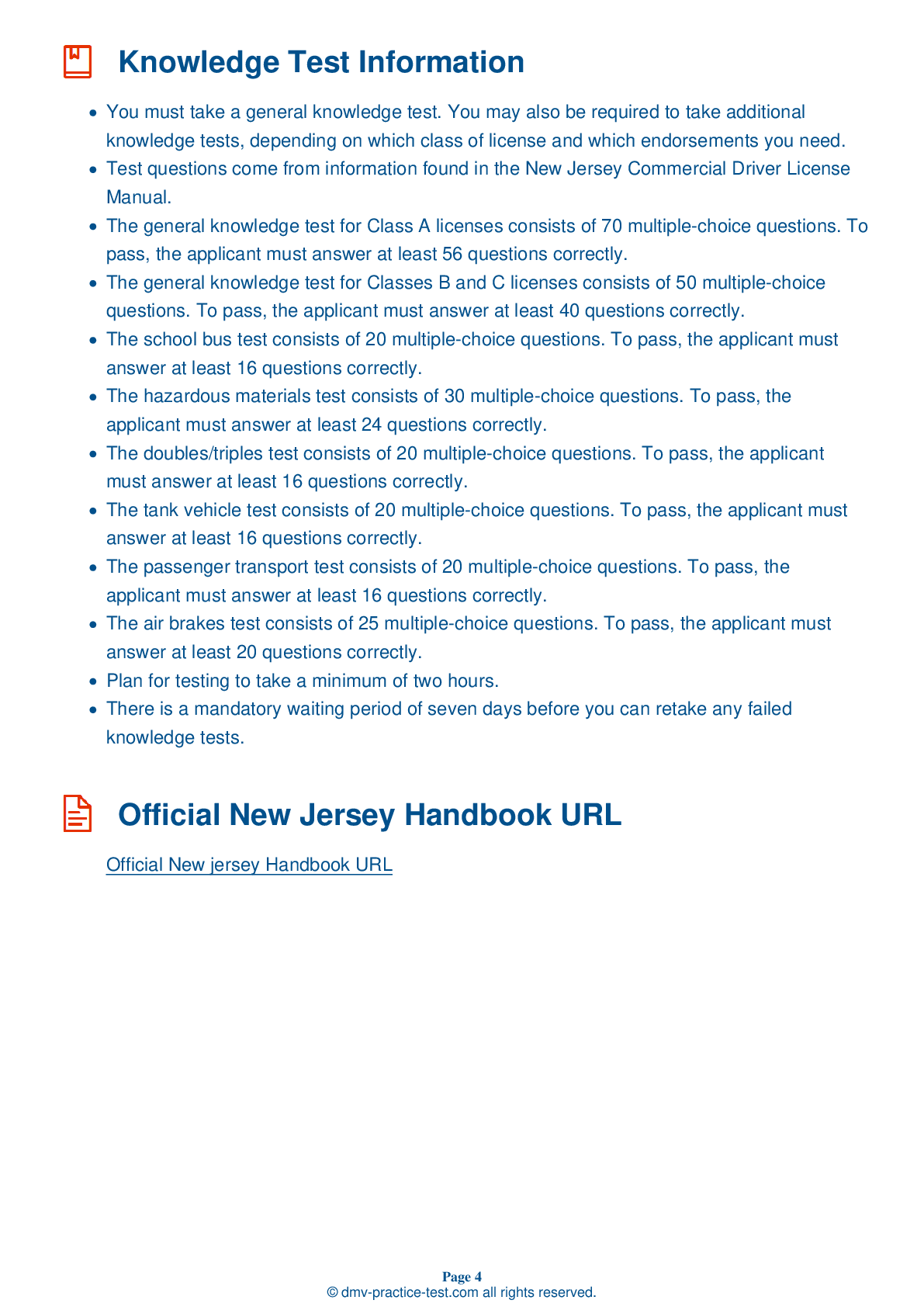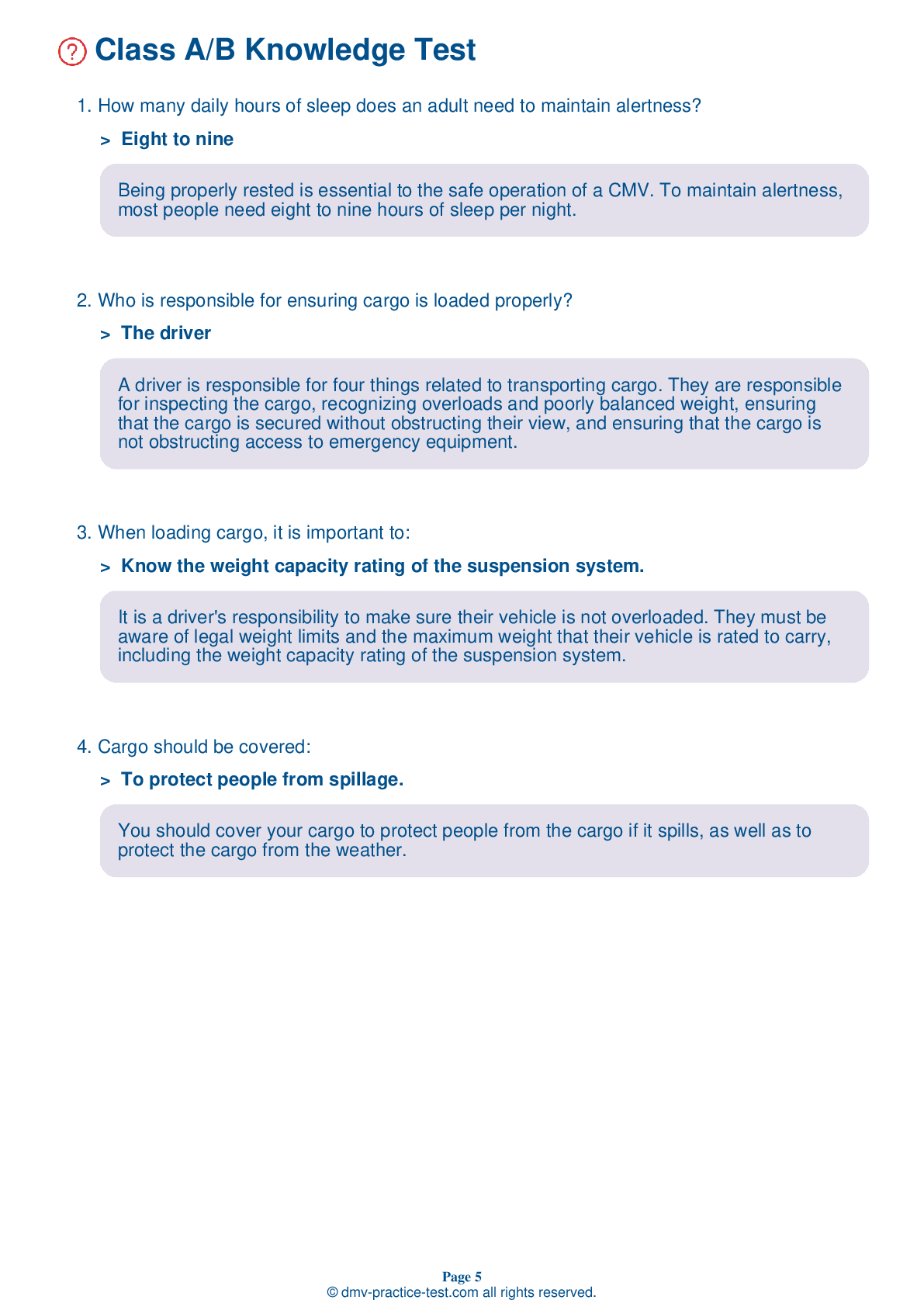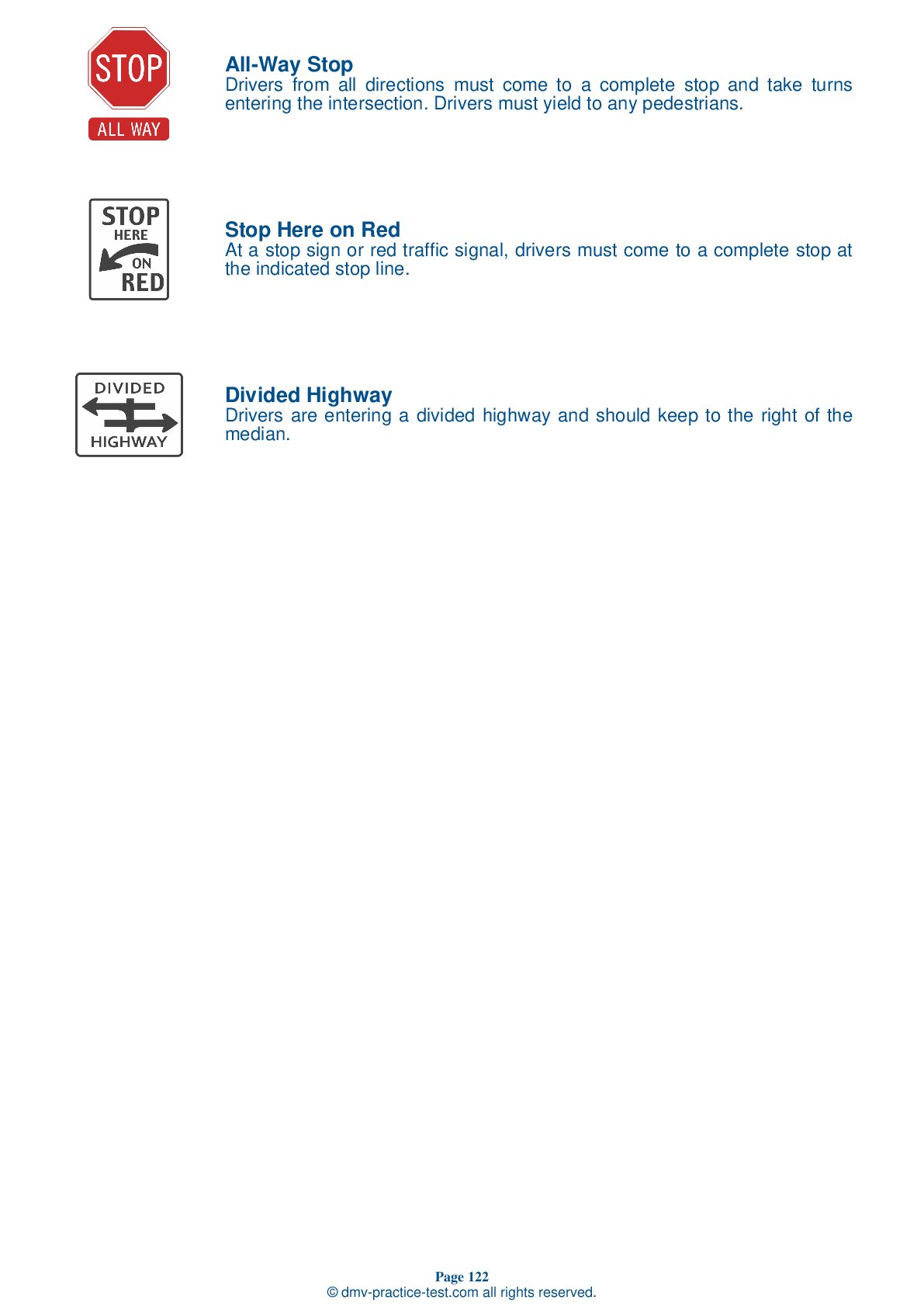Air Brakes #1
Air Brakes Endorsement Test | New Jersey 2026 #1 Page 3 of 4
Train for FREE online with our New Jersey CDL air brake test. The official exam test consists of several obligatory parts, with all of them checking your knowledge of different blocks of road rules. If you need to obtain a NJ Class A/Class B driver license in 2026, practice as much as possible. Free sample tests published on our website will help you check and improve your knowledge and boost your grades. Please bear in mind that the requirements for CDL may vary from state to state.
25
20
20
13 . Water and compressor oil are usually found in the compressed air within an air brake system. Water and compressor oil:
Are not concerns.
Compressed air in an air brake system usually contains a certain amount of water and compressor oil. The water and oil can damage the brakes if left to accumulate in the system. Manually operated air tank drains must be opened daily to remove this build-up.
14 . What kind of force must emergency brakes use?
Electrical
Because air pressure can eventually leak away, the emergency brakes in an air brake system must be held on by mechanical force.
15 . Front wheel braking works:
Under most conditions.
Front wheel braking is effective under all road conditions. It is unlikely that you will experience a front wheel skid, even on ice.
16 . Front brake limiting valves were intended to:
Remove uncertainty when applying the brakes.
Some older vehicles with air brakes have front brake limiting valves. These valves were intended to reduce the risk of front wheels skidding. However, research has shown that such devices are unnecessary, so they should be left in the "normal" position.
17 . The air entering air storage tanks may contain:
Antifreeze.
The air that enters air storage tanks in an air brake system usually contains a certain amount of water and compressor oil. Because accumulations of these materials can damage the braking system, tanks are equipped with drains to allow their removal.
18 . Some air brake systems use alcohol:
To reduce the risk of rust forming on air brake valves.
Some air brake systems contain an alcohol evaporator. This device introduces alcohol into the braking system to inhibit the formation of ice.
2026 New Jersey | Frequently Asked Questions
A CDL Class B license in New Jersey allows the holder to operate single vehicles with a Gross Vehicle Weight Rating (GVWR) of 26,001 pounds or more, or any such vehicle towing another not exceeding 10,000 pounds. This includes buses, farm labor vehicles, and trailers. It does not allow the operation of Class A combination vehicles.
A Class B CDL license in New Jersey allows the holder to operate vehicles such as city buses, tourist buses, segmented buses, school buses, delivery trucks, dump trucks, garbage trucks, utility trucks and any single vehicle with a GVWR of 26,001 pounds or more or such vehicle towing another not exceeding 10,000 pounds.
In New Jersey, to obtain a Class B CDL license, you must be at least 18 years old (21 for interstate driving), have a valid basic New Jersey driver’s license, pass a vision exam, and successfully complete a written knowledge test. You must also pass a road skills test in the type of vehicle you plan to drive.
In New Jersey, you must be at least 18 years old to qualify for a Class B Commercial Driver's License (CDL). However, you must be 21 or older if you plan to drive across state lines or transport hazardous materials.
While not always necessary, specific endorsements can be added to a Class B CDL license in New Jersey to allow the driver to operate certain types of vehicles. These include school buses, passenger vehicles, tank vehicles, and those carrying hazardous materials. Each endorsement requires passing additional tests.
The Class B CDL skills assessment in New Jersey includes a pre-trip vehicle inspection, a basic vehicle control test, and an on-road driving examination. These tests evaluate your ability to inspect your vehicle, control it during basic maneuvers, and drive it safely in various road and traffic conditions.
Yes, Class B CDL license holders in New Jersey are limited to driving single vehicles with a gross vehicle weight rating (GVWR) of 26,001 pounds or more, or towing a vehicle not heavier than 10,000 pounds. They cannot operate a combination vehicle (Class A) unless they have the appropriate endorsement.
Yes, in New Jersey, the written Class B CDL test can be taken in languages other than English. The test is available in Spanish. However, federal regulations require all CDL holders to read and speak English well enough to communicate with the general public, understand highway traffic signs and signals, respond to official inquiries, and make entries on reports and records.
Yes, you can request test accommodations for the Class B CDL written exam in New Jersey if you have a disability. Accommodations may include extended time, a quiet testing location, or the use of a sign language interpreter. You will need to provide documentation of your disability and specify the type of accommodation needed when scheduling your test.
Yes, if you don't pass the Class B CDL written test in New Jersey, you can retake it. However, you must wait at least seven days before attempting the test again. There may also be additional fees for each retest. It's advisable to study the CDL manual thoroughly before retesting.



